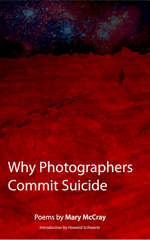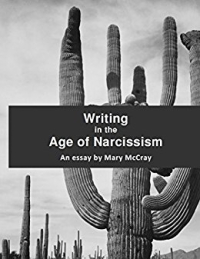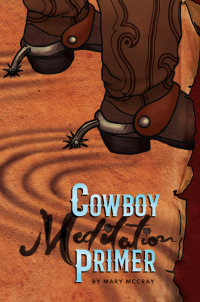While I've been at the Institute of American Arts this fall, I've had the opportunity to see some visiting poets. I've since read their books and all were completely unique.
 dg nanouk okpik is an Alaskan Inuit alum of IAIA. In Corpse Whale, okpik's experimental verses make use of stacking verbs and pronouns to narrate with a sense of simultaneous voices, dimensions and time. The book is packed with Alaskan-ness. There are hyenas, wolves, whale blubber, seal skin, salmon,caribou, falcon, the ice shelf, sponge lichen, puffins, egrets, sea cows, eels, sea spiders, ravens feature prominently. This book could serve as an animal guidebook to Alaska. The poems are also full of juicy words like marrow, notched bones, and peat soil. Her use of stacked pronouns and verbs, along with creative spacing, italics and repetition, give the poems a surreal thrust. Her narrative is shaved down to almost shorthand, decidedly mythical. There exists an emotional constancy although the narrative zig-zags can be frustrating. Their strength is that poems are so stuffed but feel so light. Whether they are experimental or in traditional stanzas or in prose poems, they all read the same.
dg nanouk okpik is an Alaskan Inuit alum of IAIA. In Corpse Whale, okpik's experimental verses make use of stacking verbs and pronouns to narrate with a sense of simultaneous voices, dimensions and time. The book is packed with Alaskan-ness. There are hyenas, wolves, whale blubber, seal skin, salmon,caribou, falcon, the ice shelf, sponge lichen, puffins, egrets, sea cows, eels, sea spiders, ravens feature prominently. This book could serve as an animal guidebook to Alaska. The poems are also full of juicy words like marrow, notched bones, and peat soil. Her use of stacked pronouns and verbs, along with creative spacing, italics and repetition, give the poems a surreal thrust. Her narrative is shaved down to almost shorthand, decidedly mythical. There exists an emotional constancy although the narrative zig-zags can be frustrating. Their strength is that poems are so stuffed but feel so light. Whether they are experimental or in traditional stanzas or in prose poems, they all read the same.
My favorite poems were "Cell Block on Chena River" for okpik's experiment solidly mapping as a form to an emotional strata, "Ricochet Harpoon Thrown Through Time Space" for simultaneously giving us modernity and history "and the evocative "A Cigarette Among the Dead." At the end of it all, I'm not sure where okpik's true center lies as the poems devolve into centrifugal wordiness. But I felt something etheral about the collection as a whole, as the poem "Her/My Seabird Sinnatkquq Dream" ends,
It's ash, ash all of it.
 Nathalie Handal came to IAIA as a visting writer. Now living in New York City, Handal is a French-speaking Palestinian with Spanish heritage. Her book Love and Strange Horses has overtly erotic pieces created to be metaphors of political/international conflicts. Honestly, I wasn't getting that until Handal explained it to me. But the suggestion changes how you a consider a line like this from "Entrances and other Endings,"
Nathalie Handal came to IAIA as a visting writer. Now living in New York City, Handal is a French-speaking Palestinian with Spanish heritage. Her book Love and Strange Horses has overtly erotic pieces created to be metaphors of political/international conflicts. Honestly, I wasn't getting that until Handal explained it to me. But the suggestion changes how you a consider a line like this from "Entrances and other Endings,"
the piling up of bones against our kiss
Handal makes use of the multiple languages she knows to decorate her poems, but her love and comfort with Spanish shines throughout. In fact, this poetry has a particularly Spanish flavor. My favorite pieces "Listen, Tonight" with the line
and answer me why we pretended/when we measured the earth/and there was no space for both of us.
and "Don't Believe" with the haunting line
Believe in the divided breaths of untitled men/and wait for the torture to believe in you.
Other good poems: "Intermission," "Portraits & Truths" and "Map of Home." In a way, the book speaks like a subconscious map to reconciliation. In "The Songmaker–19 Arabics,"
Who said we needed to be strangers when we listen to the same music?
(I've always felt that way about food. How can people who all eat baklava and humus hate each other so much?) There's a haunting abstraction going on throughout the book, with lines like this from "Dream of O'Keeffe's Dream,"
We are the suspension we believe in.
My favorite  visiting writer of the three was Natalie Diaz, who came to read from her book When My Brother Was an Aztec. I'm thinking my attraction to Diaz has to do with her direct, aggressive writing style and her 3rd-Generation feminist language and perspective. You got your balls-to-the-wall bravery mixed with pop-culture references (army men, the ceramic handprint art piece of our toddlerhoods, Lionel Richie) and I'm hooked. I've been waiting a long time to read a poet I could identify with generationally.
visiting writer of the three was Natalie Diaz, who came to read from her book When My Brother Was an Aztec. I'm thinking my attraction to Diaz has to do with her direct, aggressive writing style and her 3rd-Generation feminist language and perspective. You got your balls-to-the-wall bravery mixed with pop-culture references (army men, the ceramic handprint art piece of our toddlerhoods, Lionel Richie) and I'm hooked. I've been waiting a long time to read a poet I could identify with generationally.
Some of my favorite poems were pieces Natalie read at IAIA: "Hand-Me-Down Halloween," and "The Red Blues." I loved her anger, I loved her riffs, I loved her poems about her brother and sibling drama, I loved her erotic love poems (which were almost ghettoized to the back of the book) exploring the fleshiness of love with apples being devoured, thighs and shoulder blades and lines like "drag me into the fathoms." For me, she was the poet most in control of her words. She moved in front of them, not behind them. And her poems were filled with great lines like,
as I watch you from the window–
in this city, this city of you, where I am a beggar–
Or the final line in the poem about her veteran brother:
He was home. He was gone.
The centerpiece of the book are the poems about the drug addiction of another brother and how his drama depleted the souls of her parents. Every one of those poems works the problem at a new angle. The most amazing one was "No More Cake Here" where the narrator envisions the death of her troubled brother, the memorial party for the dead sibling complete with cake, which becomes a kind of coping, wishful thinking.
The book also deals with race in satisfyingly stark ways in poems like "Hand-Me-Down Halloween," "The Last Mojave Indian Barbie," and "The Gospel of Guy No-Horse."
It's always a gamble with those people.
Definitely one of my favorite new books of poetry.
 Did you know you can enter to win free books of poetry on the site Goodreads?
Did you know you can enter to win free books of poetry on the site Goodreads?













